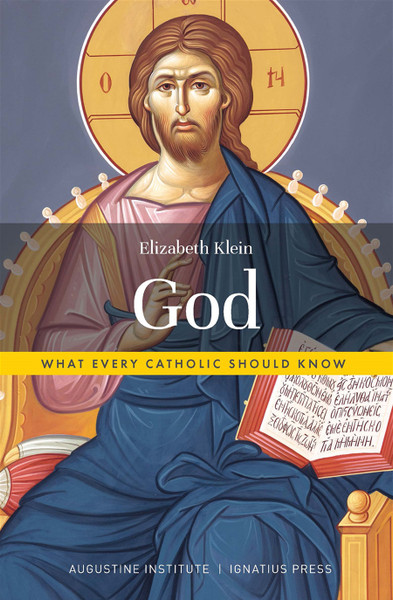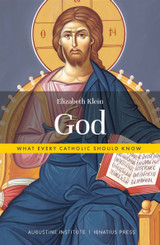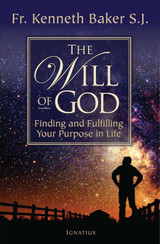Product Overview
Series Summary
The new What Every Catholic Should Know series is intended for the average faithful Catholic who wants to know more about Catholic faith and culture. The authors in this series take a panoramic approach to the topic of each book aimed at a non-specialist but enthusiastic readership.
Book Summary
Who is God? If we want to love God and make him the center of our lives, we would do well to settle this question at least in some small way. This book serves as a starting point for understanding what Christians mean when they say "God," and to whom they are referring when they use this name. Part of the What Every Catholic Should Know series, God: What Every Catholic Should Know is born out of the recognition that God is central to the Faith, but we encounter misconceptions about God all the time. In an effort to clear up these misconceptions, this book addresses three major concepts—the nature of God, the Trinity, and the Incarnation—so that we may strengthen our faith and our ability to communicate it to other people.
Some of us might protest that we are not smart enough to do theology and that less is more when it comes to contemplating the divine. But if God is perfect, wonderful, all goodness, love itself—as the Bible tells us in 1 John 4:8—it would be strange indeed if we did not want to give our whole selves to God, including our minds. After all, the Lord himself tells us: "you shall love the Lord with all your heart and with all your soul and with all your mind and with all your strength" (Mark 12:30).
Editorial Reviews
"Do you have friends or family who 'don't believe in God'? Do them a favor and buy this book. But before you give it to them, do yourself a favor and read it first. It will transform the way you see the most important person in your life: God."
— Brant Pitre, Author of The Case for Jesus: The Biblical and Historical Evidence for Christ
"Elizabeth Klein has written a splendid book. Its readable style and accessible presentation belie its sophistication and depth, and make for an introductory book that is also engaging, even for advanced readers. The last chapter is sublime and alone worth the price of the book."
—John C. Cavadini, Professor of Theology and Director of the McGrath Institute for Church Life, University of Notre Dame







